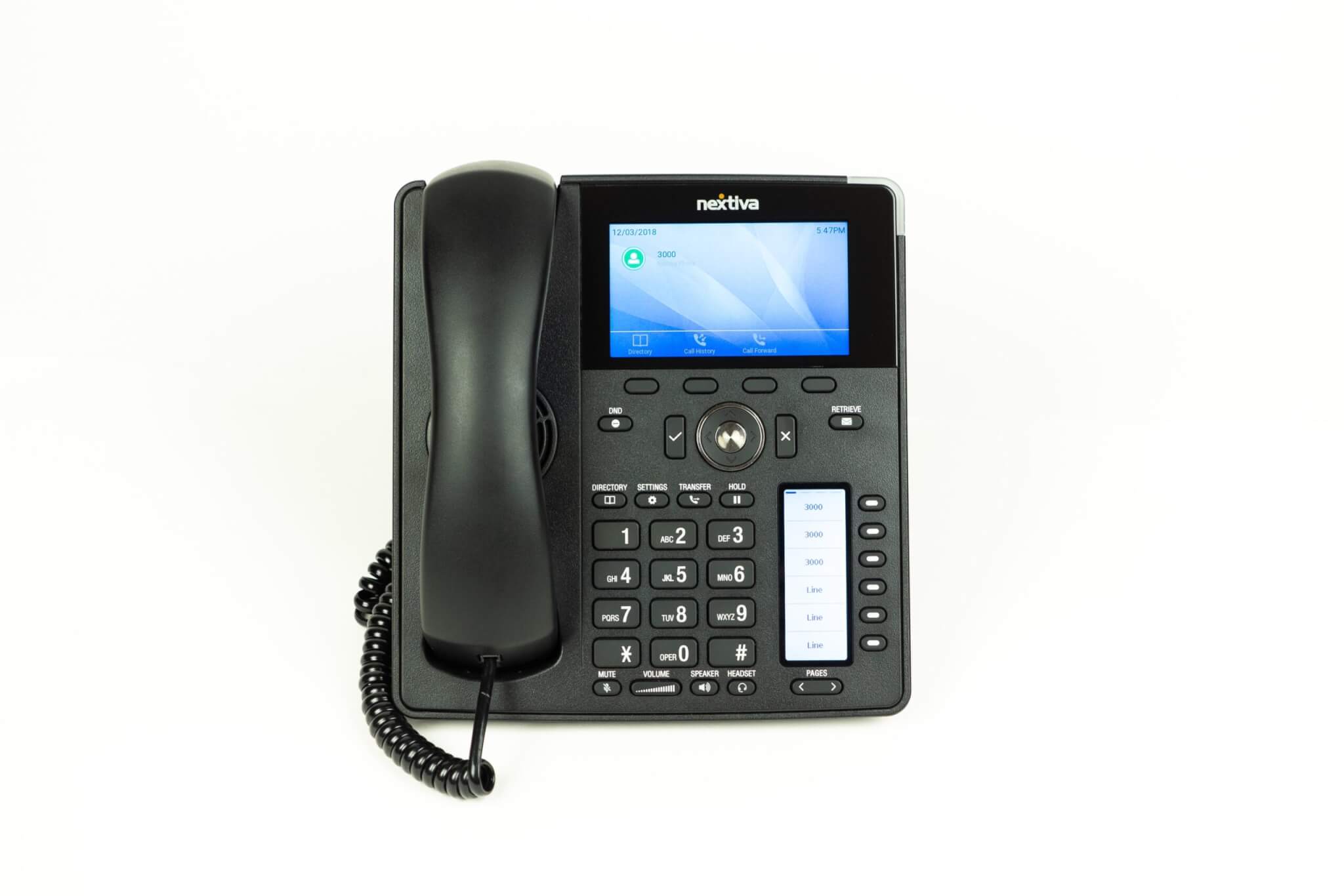Original Article Published on Mitel’s Website
For many small businesses, a hosted VoIP communications system is the perfect way to present a professional front to your customers without the headaches of a standard phone system. But selecting a hosted VoIP communications system can be confusing.
We’ve worked with many small businesses to successfully deploy business VoIP solutions quickly and easily. Here are the top 9 questions we get from small businesses.
1. What is “hosted VoIP?” How is that different from regular VoIP or my mobile phone?
By now, most SMBs are familiar with VoIP or Voice over Internet Protocol. But how is hosted VoIP different? After all, they’re both in the ether, right?
The difference with hosted VoIP is that the phone system infrastructure and hardware are managed by a service provider, such as Mitel, rather than you. You may also hear this type of solution referred to as hosted PBX or cloud VoIP. All you need is a high-speed internet connection and you’re on your way!
2. What kind of phones do I need?
The great thing about hosted business VoIP communications is that you’re not tied to a hardwired desk phone. An internet connection is all you need to turn your employees’ computers into a softphone. On top of that, a mobile app extends the service to mobile devices, and with BYOD support employees can take business calls on personal devices without having to worry about their personal number getting out.
If you’d prefer the look and feel of a desk phone, you’ll want to find an IP phone. Look for a desk phone that allows your employees to connect their mobile phones for a seamless experience. For example, the Mitel 6900 IP Series is a powerful suite of desktop phones that provide crystal clear voice quality, while our MiVoice 6940 IP Phone provides seamless mobile device integration.
3. Can I integrate with my CRM?
Yes! This is actually one of the best-selling features of a hosted VoIP system. Integration with apps such as Salesforce and other CRM applications give employees immediate access to relevant customer data, creating a more personalised and engaging customer experience (without any extra effort on the part of your staff). One less headache to worry about.
4. Many of my employees are out in the field, on the road or travelling. How can VoIP help?
Hosted VoIP is perfect for a workforce that’s on the go. Employees use a mobile app to access all the features and functionality of the business phone system from their personal mobile device. Whether a team member is working from home, travelling from client to client or at a trade show or other industry event, the lines of communication are always open. Mobile calls can transition seamlessly between networks when employees are on the move, so nothing gets missed.
5. Will it help reduce my business costs?
This is often the first question small businesses ask us. A hosted VoIP solution eliminates the hardware costs that come with on-premise installation. With maintenance in the hands of your VoIP provider, small businesses save more by removing the need for dedicated IT staff for support and maintenance. And since calls are now happening over your internet connection, hefty landline bills are a thing of the past.
Some small businesses don’t even need to invest in IP phones, with employees using computers and personal mobile devices. Indirect savings come from improvements in efficiency and productivity as collaboration tools help your employees perform their jobs more effectively.
6. What features do I really need?
Getting the most out of your communications purchase is important but too many options can seem overwhelming. In our experience, small businesses see big returns with collaboration tools such as video conferencing, chat, screen sharing and conference calling. And don’t overlook the contact centre—while you may think contact centres should be reserved for large enterprises, if you need specific routing for field service or remote workers, you might benefit from some of those functionalities.
7. I have a contact centre. Can VoIP support that?
Speaking of contact centres, a VoIP-based contact centre pairs very well with a business VoIP solution. A cloud-based contact centre gives you more capabilities, more integrations and less hassle than an on-premise one. Reporting features give managers the information they need to optimise training opportunities and adjust staffing according to peak call times. That means your team can answer more calls, see wait times reduced and improve customer satisfaction. Look for a cloud-based contact centre that’s designed to work with your business.
8. What happens if we grow? How do I add new locations or additional employees?
Hosted VoIP is an extremely scalable infrastructure that makes it simple and cost-effective to add and remove services as your business needs change. Since there are no physical landlines to maintain anymore, scaling is simple and cost-efficient. And with a managed service, you can get new users up and running in hours, not days.
9. How difficult is it to use? Do I need training?
Despite its technical-sounding name, hosted VoIP is a very user-friendly technology. Installation is easier than that of traditional phones, and there is limited training required to get up and running. There are no cables and no hardware or software to worry about. And your vendor should provide on-demand support and training, to help make your installation a success without taking valuable time. Our VoIP solutions, for example, include a built-in help button, to ensure your team can get the help they need immediately.
Hosted VoIP is an excellent solution for many small businesses, combining power, flexibility and innovation while reducing costs and ending maintenance headaches. With it, small businesses are able to offer an employee and customer experience that’s on par with bigger companies. With MiCloud Connect, you can level the playing field with access to communications and collaboration tools that companies three times your size are using.
Intrasource can help businesses of any size realise the benefits of switching to a hosted VoIP system.
If you are still not sure what communications system is best for you, in this blog, we look at the differences between a cloud phone system and hosted VOIP.
VOIP Support for SME’s from Intrasource
At Intrasource, we offer high-quality and complete VOIP systems for businesses in Hull and across the UK including IT and support services.
With our first-class hosted cloud phone solutions, you can modernise your business communications. No matter what size your company is we will be on hand to assist.
See our full list of services here or contact us today via telephone on 01482 628800 or email [email protected].



